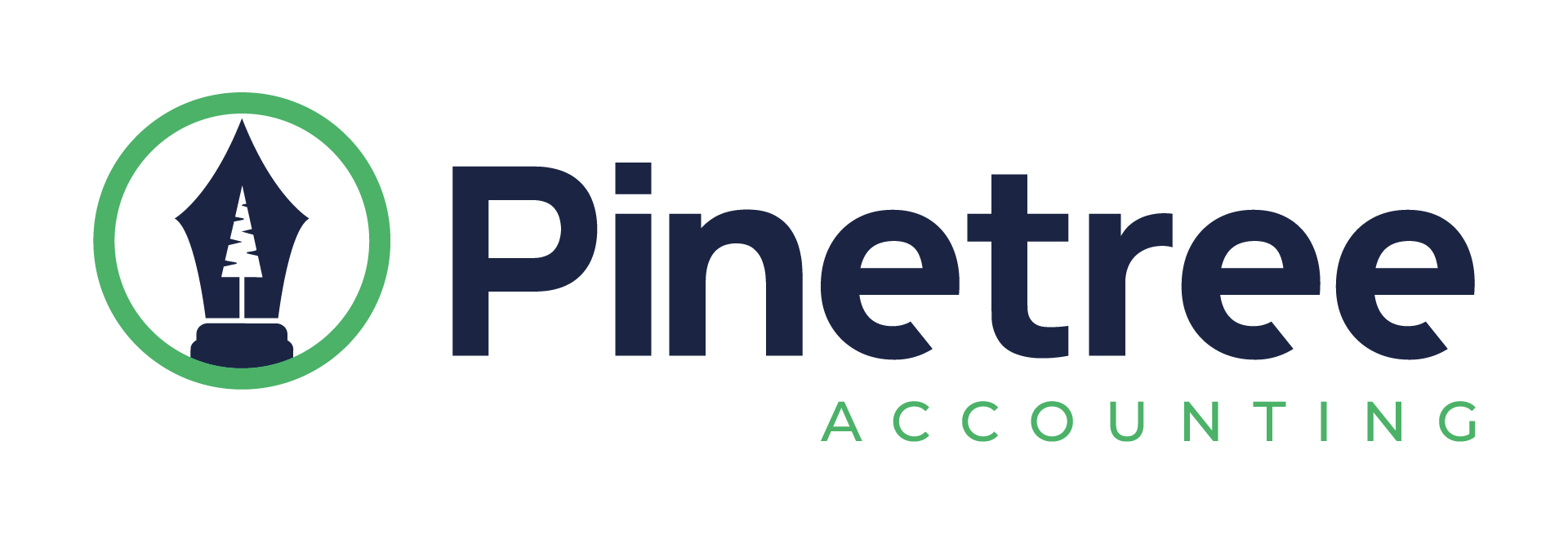Table of Contents
- Key Takeaways
- Introduction
- Understanding Hong Kong’s Corporate Tax Framework
- Territorial Taxation Principle
- Enhanced Compliance Requirements
- Advanced Tax Incentives
- International Tax Considerations
- Dispute Resolution Mechanisms
- Anti-Avoidance Provisions
- Sustainability Incentives
- Penalty Regime and Recent Updates
- Annual Tax Health Checks
- How Pinetree Accounting Services Can Help
- Conclusion
Key Takeaways
- Territorial Taxation: Hong Kong taxes only profits arising in or derived from local business activities.
- Enhanced Compliance: Stringent e-filing, digital record-keeping, and documentation standards.
- Sector-Specific Incentives: High deductions for R&D, IP registration, and special rates for maritime, aircraft leasing, and treasury centers.
- International Alignment: Over 45 double tax treaties, CFC rules, and strong anti-avoidance provisions keep Hong Kong globally competitive.
- Professional Support: Engaging a trusted accounting firm like Pinetree Accounting Services ensures full compliance and maximized tax benefits.
Introduction
Hong Kong’s corporate tax system is globally recognized for its simplicity and competitiveness, making it an ideal hub for both established corporations and budding startups. Despite its relatively low tax rates and territorial principle, Hong Kong adheres to strict international standards and robust compliance requirements.
In this article, we explore the nuances of Hong Kong’s corporate tax framework, highlighting key considerations such as territorial taxation, advanced incentives, and how to stay on top of evolving compliance mandates. If you need assistance with company setup or day-to-day financial management, Pinetree Accounting Services is here to help with Company Formation Services, Corporate Secretarial Services, and much more.
Understanding Hong Kong’s Corporate Tax Framework
Hong Kong’s corporate tax regime centers on a source-based system, meaning profits are taxed only if they are generated in or derived from Hong Kong. Let’s break down the essentials:
Territorial Taxation Principle
Profits are taxable in Hong Kong only if they:
- Arise from or are generated by Hong Kong-based operations
- Come through a permanent establishment in Hong Kong
- Are deemed Hong Kong-sourced under IRD guidelines (considering contract negotiation, risk management, or manufacturing locations)
This approach can reduce the tax burden significantly for companies engaging in cross-border trade, provided they clearly substantiate where their activities take place.
Enhanced Compliance Requirements
Hong Kong’s regulations evolve to align with international best practices, focusing on transparency and accountability:
- Mandatory E-Filing
- Companies with annual turnover over HK$2 million must file electronically.
- Cross-border transactions exceeding HK$10 million or any related-party dealings also require e-filing.
- Audited financial statements and tax computations must be in XBRL format. For professional audit assistance, see our Audit Arrangement Services.
- Documentation & Retention
- Transfer pricing master/file documentation, permanent establishment analyses, and other records must be kept for 7 years.
- Digital transaction records must comply with SHA-256 encryption standards.
- Concurrent Submission
- Large corporations must submit all required documents in a single filing, ensuring a streamlined IRD review.
Advanced Tax Incentives
Hong Kong enriches its competitive edge through a variety of sector-specific and innovation-driven tax perks:
| Incentive / Industry | Tax Benefit | Key Requirements |
|---|---|---|
| Maritime Industry | 100% tax exemption for ship leasing income | Vessel registration in HK & related operations |
| Aircraft Leasing | 20% profits tax rate + depreciation allowances | Leasing operations domiciled in Hong Kong |
| Corporate Treasury Centers | 50% concessionary rate on qualifying profits | Centralized treasury function in HK |
| R&D Expenditures | 300% deduction | Must conduct R&D within Hong Kong |
| IP Registration Costs | 200% deduction | Documented IP filing and usage |
| Patent Box Benefits | HK$3 million annual cap on qualifying IP profits | Must meet IP ownership/usage criteria |
These incentives aim to foster innovation and attract specialized industries. For comprehensive accounting support to make the most of these incentives, explore our Bookkeeping & Accounting Services.
International Tax Considerations
With over 45 double taxation treaties, Hong Kong stands as a strategic location for multinational enterprises. Key features include:
- Limitation of Benefits (LOB) Clauses: Ensures treaty benefits go to legitimate residents.
- Principal Purpose Test (PPT): Examines if transactions primarily serve to obtain tax benefits.
- Controlled Foreign Company (CFC) Rules: Applies to Hong Kong-resident companies holding foreign subsidiaries that lack substantive economic activities.
If you’re managing cross-border staffing, our Assistance in Immigration Documentation can help ensure seamless transitions and compliance with local laws.
Dispute Resolution Mechanisms
Hong Kong offers structured channels for resolving tax disputes:
- Advance Pricing Arrangements (APAs)
- Available in unilateral, bilateral, or multilateral forms.
- Coverage lasts up to 5 years with possible rollback provisions.
- Multilateral APAs have an HK$500,000 application fee.
- Tax Certainty Framework
- IRD typically issues rulings within 90 days for complex cases.
- Rulings are binding for 3 assessment years.
- A public register of rulings supports transparency.
Having accurate transfer pricing documentation is vital to success in these mechanisms. Our expert team can help maintain the data you need for smooth APA processes via our Payroll Services and Bookkeeping & Accounting Services.
Anti-Avoidance Provisions
Hong Kong’s General Anti-Avoidance Rule (GAAR) empowers the IRD to recharacterize transactions and claw back taxes if a transaction is deemed artificial or contrived. Key points include:
- 10-Year Retrospective: The IRD can investigate past transactions for up to a decade.
- Interest Deduction Limits: Generally capped at 30% of EBITDA.
- Hybrid Mismatch Rules: Target dual-deduction or non-inclusion scenarios.
- Digital Service Income: Strengthened guidelines ensure fair attribution of digital revenue.
To avoid pitfalls, consult our Tax Returns Services for thorough compliance checks and professional filing assistance.
Sustainability Incentives
As environmental concerns grow, Hong Kong supports green initiatives with targeted tax benefits:
- Green Finance:
- 50% tax deduction for green bond issuance costs.
- Accelerated depreciation for ESG-certified assets.
- Carbon credit trading exemptions encourage sustainable investments.
- Mandatory ESG Disclosure:
- Tax credit for GRI-compliant sustainability reports.
- ESG reporting must align with annual tax filings.
Businesses that integrate sustainability into their models can boost their corporate image while leveraging tax incentives. If you need help managing ESG reporting alongside other statutory obligations, our Corporate Secretarial Services are here to assist.
Penalty Regime and Recent Updates
Tiered Penalty System
Hong Kong imposes steep fines for non-compliance:
- 10% surcharge for minor omissions (<HK$1 million).
- 35% penalty for negligent misstatements.
- 100% charge for deliberate tax evasion.
Voluntary disclosures made within 3 years may qualify for a 50% penalty reduction and immunity from prosecution.
Recent Updates
- CbC Reporting: Multinational groups with consolidated revenue over HK$6.8 billion must file Country-by-Country Reporting within 12 months of fiscal year-end.
- Hybrid Mismatch & GAAR Enhancements: Strengthened rules scrutinize cross-border financing arrangements and artificial structures more deeply than before.
Annual Tax Health Checks
Staying ahead of regulatory changes and maintaining compliance is easier with regular tax health checks. Areas to review include:
- Permanent Establishment Risk: Ensure you’re not unintentionally creating a taxable presence offshore.
- Transfer Pricing Benchmarking: Keep cross-border transactions at arm’s length.
- Tax Incentive Maximization: Verify eligibility and proper documentation for R&D, IP, and sector-specific rebates.
- Digital Service Tax Exposure: Monitor your digital transactions amid evolving global standards.
How Pinetree Accounting Services Can Help
Pinetree Accounting Services is your one-stop solution for comprehensive business and tax support in Hong Kong:
- Company Formation Services: Smooth entity setup.
- Corporate Secretarial Services: Compliance with ESG disclosures and statutory records.
- Bookkeeping & Accounting Services: Accurate financials, e-filing support, and XBRL formatting.
- Payroll Services: MPF administration and streamlined salary management.
- Audit Arrangement Services: Professional audits aligned with Hong Kong regulations.
- Tax Returns Services: Expert tax submissions to minimize liabilities.
- Assistance in Immigration Documentation: Simplify work visas and international staffing matters.
Our dedicated team stays on top of regulatory updates to ensure you remain fully compliant and in control of your corporate tax obligations.
Conclusion
Hong Kong’s corporate tax system provides a dynamic, business-friendly environment grounded in territorial taxation and enriched by internationally aligned incentives. By understanding key concepts—such as sourcing rules, compliance mandates, and anti-avoidance frameworks—you can harness the full benefits Hong Kong offers while avoiding penalties.
Whether you’re a startup or an established multinational, Pinetree Accounting Services is here to help you navigate the complexities of Hong Kong’s tax regime—ensuring you stay compliant, maximize incentives, and confidently focus on growing your business.






